Vietnam is a maritime country, bordering the East Sea in three directions: East, South and Southwest; with a coastline of over 3,260km stretching from north to south and more than 4,000 large and small islands. The sea area of our country is three times larger than the mainland area, accounting for nearly 30% of the East Sea area. It is located in a favorable position on the vital maritime and air routes connecting the Indian Ocean and the Pacific Ocean; between Europe, the Middle East with China, Japan and countries in the region; is a sea rich in resources and minerals; rich and diverse in marine species,... Our country's seas and islands occupy important geo-political, geo-economic and geo-cultural positions on the regional and world strategic map. Along with that, factors causing instability and violating the sovereignty and security of Vietnam's seas and islands are still taking place fiercely; The risk of armed conflicts and disputes at sea and on islands is becoming increasingly complex and unpredictable. Recognizing the position, role and special importance of the sea and islands in the cause of building and defending the Fatherland; inheriting and developing the awareness of sea and island sovereignty of our ancestors in the history of building and defending the country, our State has built and gradually perfected the system of policies and laws on protecting the sacred sovereignty of the sea and islands of the Fatherland.
Truong Sa Island (Truong Sa district, Khanh Hoa province) _Photo: Document
Vietnam's policies and laws on protecting sea and island sovereignty
Our State's policy on protecting sovereignty over seas and islands . With the consistent viewpoint of "Resolutely and persistently fighting to protect the sovereignty and legitimate and legal interests of the nation at sea, while proactively and actively resolving and handling disputes and disagreements in the East Sea by peaceful means on the basis of international law, especially the 1982 United Nations Convention on the Law of the Sea (UNCLOS 1982); maintaining a peaceful, stable and cooperative environment for development" (1) , our Party has formulated a political line on seas and islands suitable for each period so that state agencies can institutionalize them into policies and laws on protecting Vietnam's legitimate rights and interests at sea and islands. The most important policies on Vietnam's seas and islands include "Vietnam's Marine Strategy to 2020" (2007) and "Vietnam's Sustainable Marine Economic Development Strategy to 2030, with a vision to 2045" (2018)...
With the “Vietnam Marine Strategy to 2020”, for the first time, our country has a comprehensive marine strategy with a broad strategic vision and high coverage in the fields of socio-economics, national defense - security, foreign affairs, international cooperation, environment, etc. The strategy sets the goal: “Strive to make our country a strong maritime nation, get rich from the sea, firmly ensure national sovereignty and sovereign rights at sea and islands”.
Based on the summary and inheritance of the "Vietnam Marine Strategy to 2020", on October 22, 2018, the 8th Central Conference of the 12th tenure issued Resolution No. 36-NQ/TW on "Vietnam's sustainable marine economic development strategy to 2030, vision to 2045" setting out new goals with comprehensive solutions for each stage. Specifically, the resolution identifies the general goals by 2030 : Vietnam becomes a strong marine nation; basically meets the criteria for sustainable marine economic development; forms a marine ecological culture; proactively adapts to climate change and rising sea levels; prevents the trend of pollution, marine environmental degradation, coastal erosion and sea encroachment; restores and conserves important marine ecosystems. New, advanced and modern scientific achievements become direct factors promoting sustainable marine economic development. Vision to 2045 : Vietnam becomes a strong maritime nation, with sustainable development, prosperity, security and safety; the maritime economy makes an important contribution to the national economy, contributing to building our country into a modern industrialized country with socialist orientation; actively and responsibly participating in solving international and regional issues related to the sea and ocean. The strategy proposes 7 important solutions to realize these goals.
Entering a new development phase, on March 5, 2020, the Government issued Resolution No. 26/NQ-CP, on "Issuing the Government's master plan and 5-year plan to implement Resolution No. 36-NQ/TW dated October 22, 2018 of the 8th Conference of the 12th Party Central Committee on the Strategy for sustainable development of Vietnam's marine economy to 2030, with a vision to 2045". Next, on November 24, 2021, the Prime Minister issued Directive No. 31/CT-TTg, "On innovation and strengthening the organization of implementation of the Strategy for sustainable development of Vietnam's marine economy to 2030, with a vision to 2045". In which, it pointed out the causes affecting the organization of implementation of Resolution No. 36-NQ/TW. On that basis, it is necessary to innovate and strengthen the implementation of the Strategy for sustainable development of Vietnam's marine economy to 2030, with a vision to 2045.
Laws of our State on protecting sovereignty over seas and islands . Immediately after the country's reunification, on May 12, 1977, the Government issued a Declaration on territorial waters, contiguous zones, exclusive economic zones and continental shelves. Then, on January 29, 1980, the Government issued Decree No. 30/CP on "Regulations for foreign vessels operating in the waters of the Socialist Republic of Vietnam"; on November 12, 1982, the Government issued a declaration on baselines used to calculate the breadth of Vietnam's territorial waters. In 1994, Vietnam became the 63rd country to ratify UNCLOS in 1982. After becoming an official member of UNCLOS in 1982, Vietnam issued many legal documents to specify the provisions of the Convention (2) . In particular, in 2012, the Law of the Sea of Vietnam was promulgated with most of its contents compatible with the 1982 UNCLOS.
Vietnam is increasingly perfecting its policies and laws on the management, enforcement and protection of sea and island sovereignty (3) . The 2013 Constitution affirms: “The Socialist Republic of Vietnam is an independent, sovereign, unified and territorially intact country, including the mainland, islands, seas and airspace” (Article 1); “Land, water resources, mineral resources, resources in seas, airspace, other natural resources and assets invested and managed by the State are public assets owned by all people, represented by the State as the owner and uniformly managed” (Article 53).
The Law on the Sea of Vietnam was passed by the National Assembly on June 21, 2012, effective from January 1, 2013. It is an important legal document, comprehensively regulating issues related to the sea and islands in accordance with the spirit of UNCLOS 1982. With 7 chapters and 55 articles, the Law on the Sea of Vietnam stipulates the main contents such as: Principles, policies for management and protection of the sea; scope and legal regime of internal waters, territorial waters, contiguous zones, exclusive economic zones, continental shelves, islands and archipelagos of Vietnam; activities in Vietnam's seas; search, rescue and salvage; protection of marine resources and environment; marine scientific research; development of the marine economy; patrol and control at sea; international cooperation on the sea; handling of violations. In particular, there are important points to note such as: 1- Reaffirming Vietnam's sovereignty over the islands, especially the Hoang Sa and Truong Sa archipelagos; further clarifying the concepts of islands, archipelagos, and rocks; more fully regulating the determination of baselines, scope, and legal regime of Vietnam's sea areas and continental shelf; clearly and reasonably regulating the freedom of navigation and aviation in Vietnam's exclusive economic zone and continental shelf in accordance with the provisions of the 1982 UNCLOS, ensuring Vietnam's maritime rights; 2- Vietnamese agencies, organizations, and all citizens are responsible for protecting the sovereignty of the sea and islands. Promoting the strength of the entire nation and implementing necessary measures to protect maritime sovereignty, protect marine resources and environment, and develop the marine economy; 3- Devote a separate chapter to marine economic development, mobilizing all resources of the State, citizens, domestic and foreign organizations, on the basis of the principle that marine economic development must be associated with the cause of protecting national sovereignty, national defense, security, order and safety at sea; 4- Affirm that Vietnam advocates resolving disagreements and disputes related to the sea and islands with other countries by peaceful means, on the basis of respecting national independence, sovereignty and territorial integrity, in accordance with international law and practice.
The above legal documents are important legal bases to serve the economic development, protection of sea and island sovereignty and territorial integrity of Vietnam. On the other hand, through these legal provisions, Vietnam demonstrates its positivity, determination and commitment to respect and implement the provisions of the 1982 UNCLOS; demonstrating that Vietnam is a responsible member of the international community, determined to strive for peace, stability, cooperation and development in the region and the world.
Wrong and hostile views on sea and island issues
The East Sea, with many development advantages, has become the focus of competition for interests, power and influence among major countries, with many complex and sensitive developments. Taking advantage of this issue, hostile and reactionary forces and political opportunists have been actively putting forward wrong views, distorting the guidelines, policies and laws of the Party and State of Vietnam in the struggle to protect sovereignty over seas and islands.
Recently, hostile, reactionary forces and political opportunists have used social media, reactionary newspapers and radio stations abroad to disseminate documents, images and videos distorting content related to Vietnam's sovereignty over seas and islands, focusing on the following contents:
Firstly, they stereotype, fabricate and distort the policies and guidelines of our Party and State on protecting sovereignty over seas and islands. The argument they often spread is that the Vietnamese Party and State "take lightly", "ignore", and do not have resolute actions in protecting national sovereignty over the East Sea;... They put forward "proposals" and "recommendations" demanding changes in Vietnam's foreign policy on sovereignty over seas and islands.
Second, distorting and sabotaging Vietnam's peaceful and self-defense defense policy. They claim that Vietnam, because of its "bamboo diplomacy", does not dare to use its navy and coast guard to resolve disputes and disagreements at sea. They criticize the combat capability and strength of our armed forces; that if Vietnam does not use force, it will "lose its seas and islands, and the country will be in danger"; and call on the military to "respond with force" to the actions of other countries.
Third, taking advantage of complicated developments and sensitive issues in the East Sea to propagate and incite public opinion against the Party and the State; inciting people to create "anti-China", "escape China" or "pro-US" movements... Taking advantage of the patriotism of the masses to call for demonstrations, protests, riots, overthrow, causing insecurity and disorder,...
Fourth, distorting and sabotaging the foreign policy of independence, self-reliance, diversification and multilateralization in international integration of our Party and State. Hostile forces believe that Vietnam must abandon the "four no's" policy (4) , that Vietnam will not be able to stand firm "without entering into a military alliance with an external power"; to protect Vietnam's sovereignty over its seas and islands, it is necessary to form a military alliance,...
It must be affirmed that the above arguments are completely wrong, blatantly distorting and denying the achievements and correct viewpoints of our Party and State on protecting the sovereignty of the sea and islands. The purpose of hostile, reactionary forces and political opportunists is to deny the leadership role of the Party, divide the relationship between the Party, the State, the army and the people; destabilize the security and political situation of the country; cause insecurity, doubt and loss of confidence of the people in the Party and the State; divide the great national unity bloc; damage Vietnam's relations with other countries so that Vietnam falls into a state of confrontation and isolation. The deep plot of hostile, reactionary forces is to use the issue of the sea and islands to carry out "peaceful evolution" to sabotage the Party and the State of Vietnam.
Arguments to fight against wrong and hostile views on sea and island issues
Firstly , our Party and State have always clearly and consistently affirmed the viewpoint: Sovereignty over seas, islands and territorial integrity are sacred and cannot be violated (5) ; Vietnam “resolutely and persistently fights to firmly protect independence, sovereignty, unity, territorial integrity, airspace and sea; maintain a peaceful and stable environment for development” (6) ; “All activities at sea must be conducted on the basis of the 1982 UNCLOS, respecting the sovereignty, sovereign rights and jurisdiction of coastal states in sea areas established in accordance with the Convention” (7) ... These viewpoints have been affirmed many times by our Party and State, clearly, publicly and transparently, without “ignoring” or “not resolutely protecting sovereignty over seas, islands and national interests at sea”... as the opposing subjects distort and slander.
Second , in reality, whenever Vietnam’s sovereignty and sovereign rights in the East Sea are violated by foreign countries, our Party and State always express their views and attitudes of resolute opposition to such violations, and determination to protect the sacred sovereignty of the sea and islands of the Fatherland. On the other hand, Vietnam is always proactive, active and persistent in gradually resolving existing disagreements over the sea and islands with relevant countries, in order to promote friendly and cooperative relations, contributing to strengthening regional peace and security.
Third , as a country that has suffered many painful consequences and losses due to war, Vietnam opposes war and conflict in any form. Our Party and State have always been consistent in resolving disputes, disagreements and differences in the East Sea by peaceful means, in accordance with the 1982 UNCLOS and international law, maintaining a peaceful, stable, secure and safe environment at sea. Persistently pursuing the goal of not allowing foreign encroachment but also not allowing conflicts to occur, persistently seeking long-term solutions and requiring relevant parties not to take excessive and extreme actions, complicating the situation, complying with signed commitments, resolving all disagreements on the basis of respecting international law. At the same time, being ready in all aspects, determined to firmly protect the independence and sovereignty of the sea and islands. This is a measure that demonstrates determination but is clever and flexible in strategy, suitable to specific conditions, circumstances, and timing to achieve the set goals, not "not daring to use force to protect sovereignty" as distorted by reactionary, hostile forces and political opportunists.
Fourth , our Party and State always prioritize all the best resources for the task of maintaining sovereignty over the sea and islands. The forces managing and protecting the sea and islands have been gradually built and developed more and more firmly, in which the Vietnam Navy has been given priority investment by the Party and State to move straight to modernity, with remarkable maturity and growth, capable of being the core to protect the sovereignty over the sea and islands of the Fatherland. In addition, Vietnam has developed a strategy of "people's war" at sea, creating favorable conditions for fishermen to confidently stick to the sea, develop the marine economy; and get rich from the sea. We advocate protecting the Fatherland with the combined strength of the entire nation, combining national strength with the strength of the times, in which, building a revolutionary, disciplined, elite, and modern people's armed force is the core. This is also an affirmation of the correct policy of our Party and State to smash the distorted arguments about the fighting ability of the Vietnamese army and the invincible strength of the all-people national defense posture.
Fifth , the view that “Vietnam needs a military alliance with a foreign power to maintain its independence, sovereignty and territorial integrity” is a wrong, baseless, “harmful” view, going against the correct foreign policy of our Party and State. As a maritime country, located in a favorable position, if Vietnam enters into a military alliance with a power outside the region, it will certainly increase instability in the region, thereby directly affecting the security and development environment of the country. On the other hand, it is necessary to clearly recognize that, in the context of countries promoting national interests, no power is willing to confront another power to protect the sovereignty and territorial integrity of a third country. The price to pay for dependence on major countries will be very high. It must be affirmed that the strength to protect Vietnam's sovereignty over its seas and islands does not come from joining an alliance with any superpower, but from the combined strength of the country, the strength of the entire people, the will of national self-reliance and self-reliance, combining national strength with the strength of the times based on international law. Reality proves that thanks to the consistency and correct implementation of this foreign policy, Vietnam has created the consensus and support of the international community for the cause of building and defending the Fatherland, bringing strategic trust - an extremely important foundation for partners and countries in international relations.
Sixth , in recent times, in the context of many complicated developments in the world and the region, the task of protecting the sovereignty of the sea and islands of the Fatherland has faced great difficulties and challenges, but under the leadership of the Party and the management of the State, our army and people have actively deployed activities to protect national sovereignty and interests at sea. We have "Proactively, resolutely, persistently fought with appropriate measures, protected the sovereignty of the sea, islands, and airspace and maintained peace and stability for national development" (8) , Vietnam's position and prestige in the international arena have grown stronger and stronger, " our country has never had such a foundation, potential, position and international prestige as it does today " (9) . That reality is solid evidence that smashes the wrong views of hostile forces on Vietnam's sovereignty over the sea and islands.
Some orientations to protect sovereignty over seas and islands
To protect the sacred sovereignty of the sea and islands of the Fatherland, in the coming time, it is necessary to focus on implementing well the following orientations:
First, strengthen the Party's leadership and the State's management in protecting sea and island sovereignty.
Focus on building party organizations in forces participating in protecting sovereignty over seas and islands, and clean and strong coastal localities. At the same time, regularly innovate the Party's leadership methods for the cause of protecting sovereignty over seas and islands; constantly improve the Party's leadership capacity and fighting strength to match the requirements of the tasks in the new situation. Perfect the system of comprehensive and unified state management agencies for seas and islands from the central to local levels to ensure modernity; build a strong force to protect sovereignty and enforce laws at sea; build a contingent of cadres with good capacity and qualities. Improve the effectiveness of coordination between agencies, between the central and local levels on seas and islands.
Fisheries surveillance ship patrols An Bang island area, Truong Sa island district, Khanh Hoa province_Source: nhiepanhdoisong.vn
Second, perfecting the system of policies and laws to meet the requirements of protecting sea and island sovereignty in the new situation.
Review, supplement and perfect the system of policies and laws on seas and islands towards sustainable development, ensuring feasibility, consistency, unity, and conformity with legal standards and international treaties that Vietnam participates in. Create a solid legal corridor to protect sovereignty over seas and islands.
Third, promote the strength of the entire nation and take necessary measures for the cause of fighting to protect sovereignty over seas and islands.
Continue to do a good job of propaganda to raise awareness, consciousness, responsibility and obligations of citizens towards the sovereignty of seas and islands. Strengthen trust and create high consensus and unanimity in the entire political system and people on the policies and guidelines of the Party and State related to economic development and protection of sovereignty of seas and islands. Take care to build and consolidate the great national unity bloc, promote patriotism, responsibility, dedication and creativity of the people towards the cause of protecting sovereignty of seas and islands and enforcing the law at sea.
Fourth, better resolve the relationship between economy and national defense and security; between exploitation and protection of seas and islands.
The entire Party, the entire people and the entire army must thoroughly grasp, concretize and effectively implement the Strategy for National Defense in the new situation and the Strategy for sustainable development of Vietnam's marine economy to 2030, with a vision to 2045. Successfully achieve the goal of turning our country into a strong maritime nation, rich from the sea, firmly ensuring national sovereignty and sovereign rights at sea and on islands.
Fifth, proactively and effectively combat false and hostile arguments about protecting sea and island sovereignty.
Strengthening propaganda, political and ideological education on the situation of seas and islands, raising awareness and responsibility for protecting sea and island sovereignty for the entire political system and society. Promoting the role of the media in the fight to protect sea and island sovereignty. Strengthening network security and applying technical solutions to remove and prevent bad and toxic information about the situation of the East Sea in general and Vietnam's sea and islands in particular. In particular, every cadre, party member and citizen must be extremely alert and vigilant against the tricks of distortion and speculation by hostile and reactionary forces; actively and proactively fighting against erroneous and hostile viewpoints, contributing to firmly protecting the sacred sovereignty of the sea and islands of the Fatherland.
Sixth, proactively strengthen and expand foreign relations and international cooperation on seas and islands.
In the context of globalization, to protect the sovereignty of the sea and islands, we must promote the spirit of self-reliance and self-improvement, and at the same time, combine national strength with the strength of the times. Consistently implement the foreign policy of independence, self-reliance, diversification and multilateralization; proactively improve the effectiveness of international integration; resolutely and persistently fight to protect the sovereignty and legitimate and legal interests of the nation at sea. It is also necessary to determine that resolving disputes in the East Sea is a difficult, long-term issue that cannot be rushed. It is necessary to persistently cooperate to seek peaceful measures to resolve disputes, not to further complicate the situation, and to protect the legitimate interests of countries on the basis of compliance with international law, especially the 1982 UNCLOS. Strengthen the Party's foreign affairs, state diplomacy and defense diplomacy with countries that are having conflicts and disputes at sea to reduce tensions, not to further complicate the situation, gradually build friendly relations, resolve conflicts, and create a favorable environment for protecting sovereignty over seas and islands./.
------------------------------
(1) Documents of the 8th Conference of the 12th Central Executive Committee , Central Party Office, Hanoi, 2018, pp. 104 - 105
(2) of the 1991 Maritime Code; Vietnam Law of Airfall in 1991; 1993 PetroVietnam Law;
3) National Border Law 2003 (amended and supplemented by 2020); Law on Environmental Protection in 2022 (replacing the Law on Environmental Protection in 1993, 2005 and 2014); the Petroleum Law in 2023 (replacing the Petroleum Law in 1993 amended in 2005 and 2008); 2017 Law on Vietnam Coast Guard Law
(4) Do not participate in the military alliance; not linked to the other country;
(5) Article 11, Constitution 2013
(6) The 13th National Congress of Delegate, National Political Publishing House, Hanoi, 2021, T.
.
(8) Document of the 12th National Congress , National Political Publishing House, Hanoi, 2016, p.
(9) The 13th National Congress of Congress , National Political Publishing House, Hanoi, 2021, T.
Source: https://tapchicongsan.org.vn/web/guest/nghien-cu/-/2018/991402/chinh-sach%2C-phap-luat-cua-viet-nam-ve-bao-ve-chu-quye%2c-dao-da-dau -phan-bac-quan-diem-thu-thu-van-iron-iron-%2c%2C%2C%2c%2-%2c%2-iron-iron-%2 dao.aspx


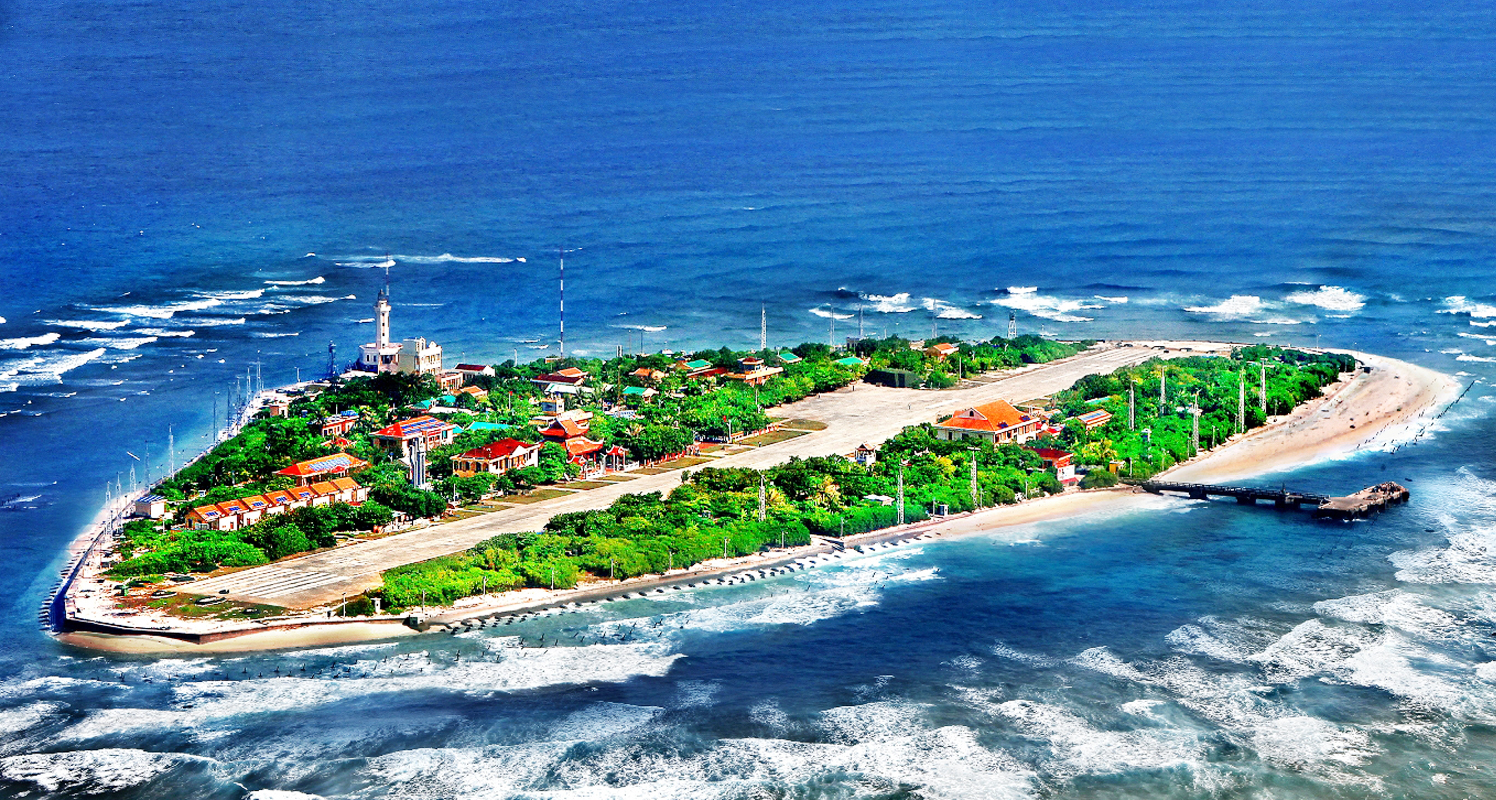
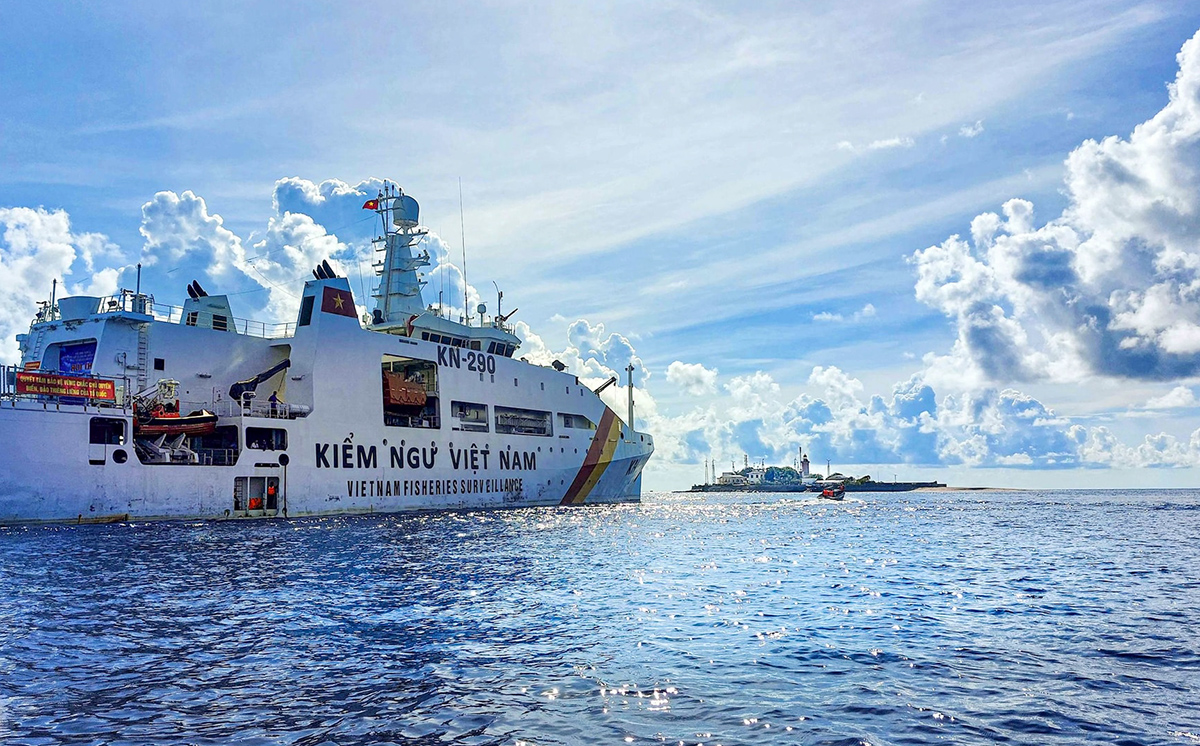

![[Photo] Prime Minister Pham Minh Chinh receives Swedish Minister of International Development Cooperation and Foreign Trade](https://vphoto.vietnam.vn/thumb/1200x675/vietnam/resource/IMAGE/2025/5/12/ae50d0bb57584fd1bbe1cd77d9ad6d97)
![[Photo] Prime Minister Pham Minh Chinh works with the Standing Committee of Thai Binh Provincial Party Committee](https://vphoto.vietnam.vn/thumb/1200x675/vietnam/resource/IMAGE/2025/5/12/f514ab990c544e05a446f77bba59c7d1)


![[Photo] Prime Minister Pham Minh Chinh starts construction of vital highway through Thai Binh and Nam Dinh](https://vphoto.vietnam.vn/thumb/1200x675/vietnam/resource/IMAGE/2025/5/12/52d98584ccea4c8dbf7c7f7484433af5)


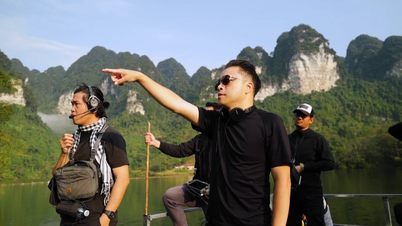
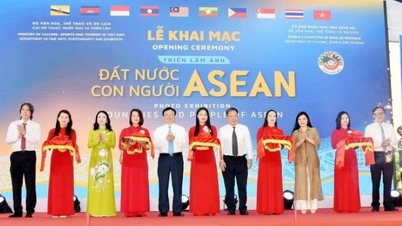

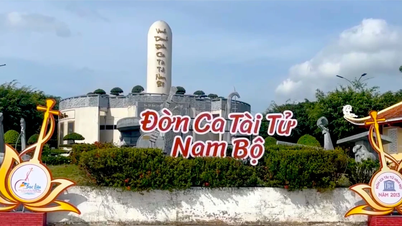





















































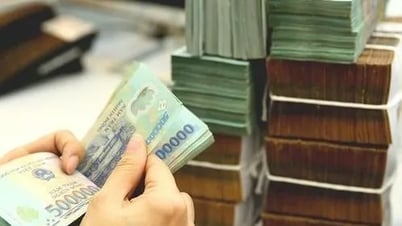



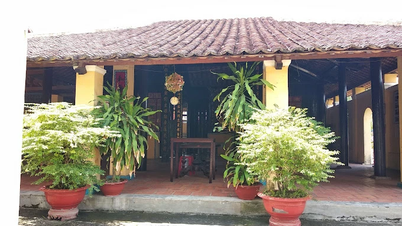















Comment (0)